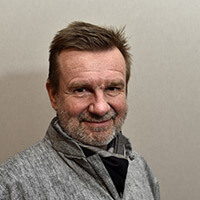Listening to Aline Plançon, a criminal intelligence officer with Interpol, talk about counterfeiting, the scale of the problem now facing the international community soon becomes clear. A state of affairs that all the speakers at the Intellectual Property Day organised by Geneva University’s School of Law were at pains to emphasise. “No matter what economic data we refer to,” Aline Plançon explains, “the figures are alarming. Furthermore, every type of product is concerned, from powdered milk to electric wire, pharmaceuticals and batteries. When you know that this traffic is used not just to finance mafia organisations but for money-laundering too, you can measure the full extent of the problem as it leads directly to other forms of criminal activity such as traffic in arms, drugs and even humans.”
Interpol isn't giving up
The fact remains that the response to this growing affliction is still wanting, as Aline Plançon observes: “public authorities that show little interest and penalties that do nothing to dissuade while the rot continues to spread via the Internet, and a collective response that is slow in coming.” In other words, while the international community is beginning to stir into action, counterfeiting and piracy still have bright days ahead, as the counterfeiters remain several steps ahead of their pursuers. Which doesn’t mean Interpol has thrown in the towel.
Interpol implements a multi-level strategy in the fight against piracy and counterfeiting, providing police support and training, implementing a proactive partnership between customs, police, industry and international organisations, and developing a database worthy of the name, a new development since last February, to support and facilitate operations. So much for the theory; what about in the field? Interpol has implemented three operations to date, two in South America targeting counterfeit CDs, DVDs, tobacco and pharmaceutical products, and one in Asia targeting counterfeit malaria drugs. All these interventions were initiated by the rights-holders and carried out in collaboration with the courts, customs and local police.
The wrath of Jupiter
Operations Jupiter I and II in South America resulted in goods with a potential retail value of $35 million being seized, some one hundred arrests, and six international arrest warrants. Operation Jupiter III in Asia led to $55 million-worth of goods being seized and the dismantling of the distribution network. Says Aline Plançon, “In all three operations, the rights-holders were willing to pool their expertise. However, the countries we targeted, Paraguay, Brazil and Argentina in particular, are still insufficiently organised for this type of operation. Ultimately, the biggest problem we came up against was corruption. Just one example: we organised a raid on a factory making counterfeit CDs in Paraguay. We liaised with the prosecutor, alerting the police at the last minute, just an hour before the raid. When we got there, the counterfeiters were already making tracks…”
Given the sheer size of the counterfeit market – the OECD estimates sales, excluding online, at some $200 billion a year – one can’t help but wonder if the results of Interpol’s Operations Jupiter aren’t an insignificant drop in an ocean of good intentions. “It’s not a very flattering image,” concludes Aline Plançon, “but at Interpol we believe we can succeed. Counterfeiting is spreading too much for us not to seek to stop it. So we’re carrying on the fight!”









